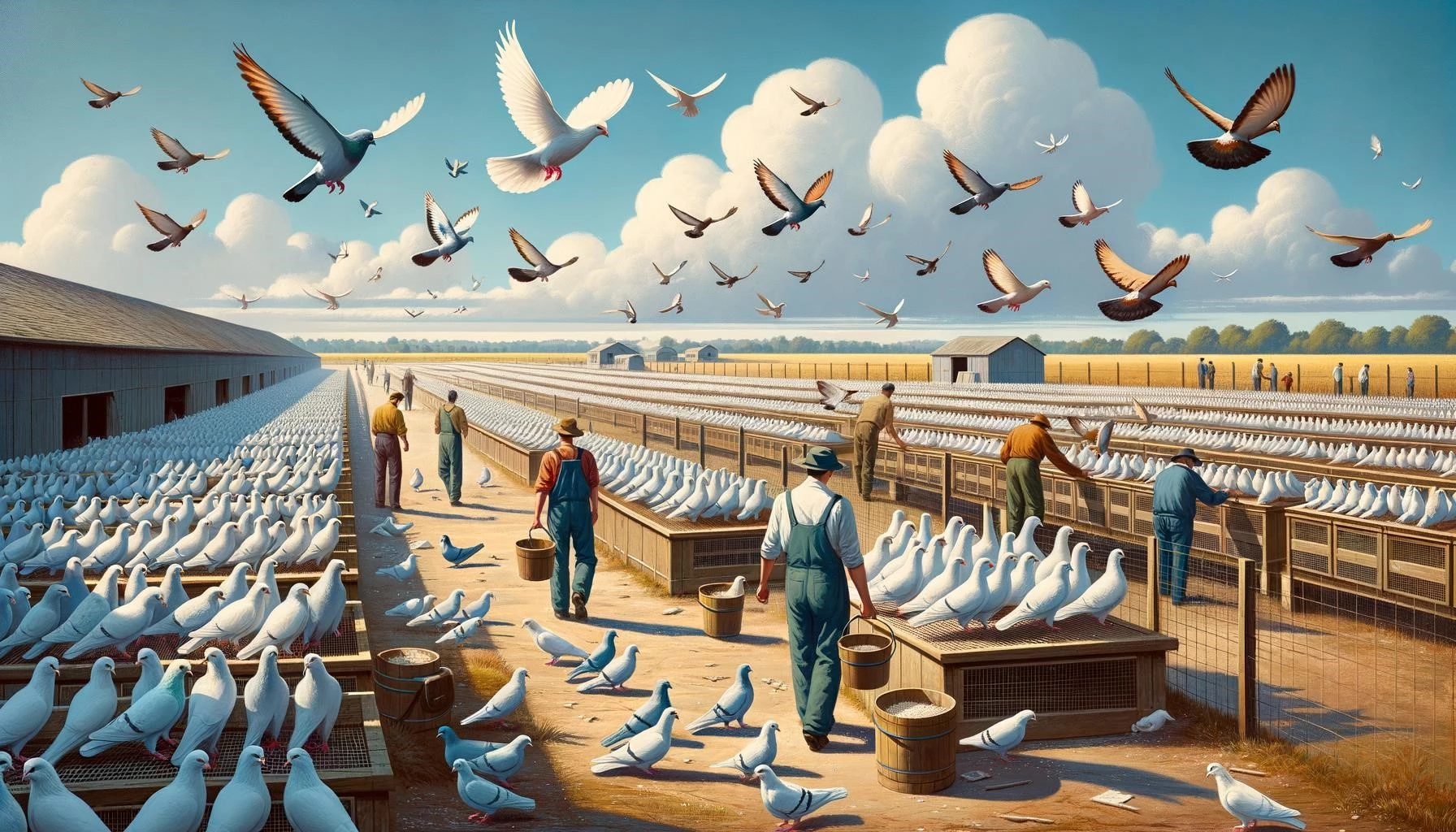Pigeons are beautiful domestic birds that are often found on farms. They are known for their distinctive cooing sound and have been bred for various purposes, including racing and meat production. Pigeon farming can be a profitable and interesting business, with many people choosing to breed pigeons in their backyards or on the roofs of their farms. However, pigeons can also cause problems on farms, such as damaging crops and consuming large quantities of grain.
Key Takeaways
- Pigeon farming is a profitable and interesting business.
- Pigeons can cause damage to crops and consume large quantities of grain.
- Pigeons have been bred for racing and meat production.
Pigeon Farming and Breeding
Pigeon farming is a popular venture for many farmers due to its profitability and ease of management. Pigeons are considered beautiful domestic birds and are admired for their unique characteristics. They are often bred for racing, with different breeds competing in various competitions. Pigeon racing is a popular sport in many parts of the world, and breeders often invest a significant amount of time and money in raising and training their pigeons for racing events.
Aside from racing, pigeons can also be bred for meat production. Pigeon meat is considered a delicacy in some countries and can fetch high prices in the market. Pigeon farms that focus on meat production often have specialized facilities and practices to ensure the health and well-being of the birds. These farms may also implement specific feeding regimens to promote optimal growth and meat quality.
When it comes to breeding pigeons, it is important to have a good understanding of genetics and selection. Breeders often aim to produce pigeons with desired traits such as speed, endurance, or specific physical characteristics. This involves careful pairing of birds based on their genetic makeup and performance history. Breeders may also participate in shows and exhibitions to showcase their pigeons and gain recognition for their breeding efforts.
Pigeons on Farms: Potential Issues
While pigeons can be profitable and enjoyable to raise, they can also cause problems on farms. One major issue is the damage they can cause to crops. Pigeons are known to feed on grains and can consume and contaminate large quantities of agricultural produce. This can result in significant financial losses for farmers, especially those in grain-growing regions. Additionally, the droppings of pigeons can accumulate and kill vegetation, further exacerbating the issue.
Pigeons have also been associated with the transmission of diseases. They can carry pathogens such as salmonella, which can contaminate crops and pose a risk to human health. Farmers need to implement appropriate measures to prevent the spread of diseases, such as maintaining proper hygiene and implementing bird control strategies.
One common bird control method used on farms is the use of pigeon traps. These traps are designed to capture pigeons and prevent them from causing further damage. Traps can vary in size and design, but the goal is to effectively remove the birds from the farm premises.
Managing Pigeons on Farms
Farmers can take various measures to manage pigeons and minimize their impact on farm operations. One key strategy is to limit the availability of food and water sources for pigeons. This can be achieved by cleaning up spilled grain, using covered feeders, and storing grain in birdproof containers. Limiting access to water sources can also discourage pigeons from congregating around farm buildings.
It is important to keep the farm environment clean and free from potential attractions for pigeons, such as food scraps or crumbs. Farmers should seal off any gaps or openings where pigeons can enter farm buildings, such as gaps in railings or windows.
In conclusion, pigeons can be a valuable addition to farms, but they can also pose challenges. Proper management strategies can help farmers mitigate the potential issues caused by pigeons, allowing for a harmonious coexistence between the birds and farm operations.









